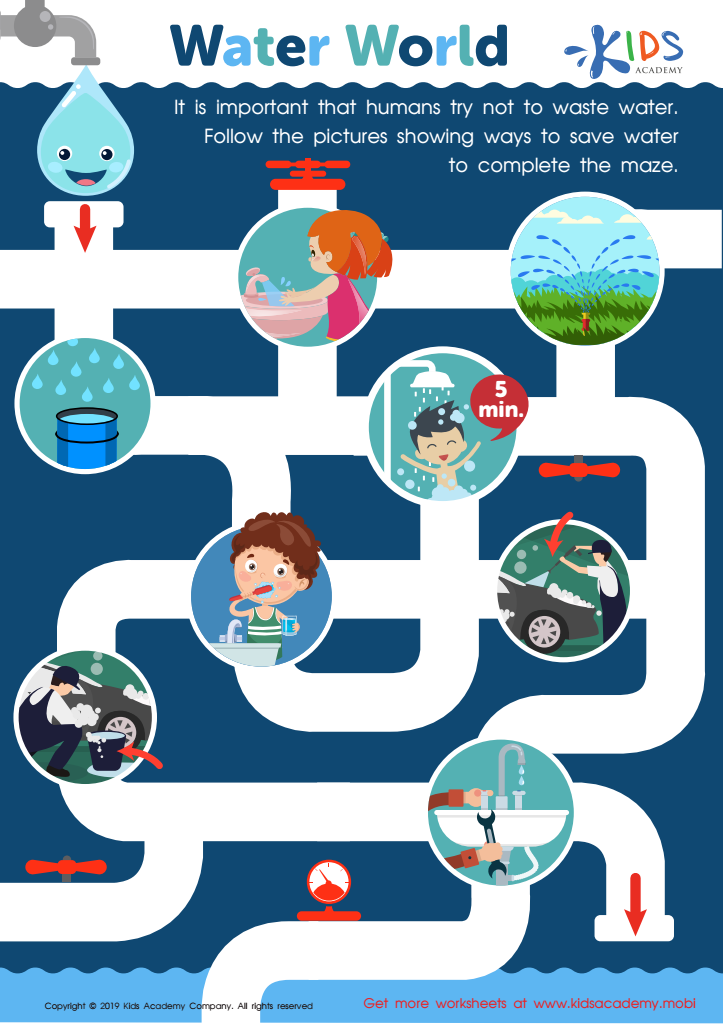Identifying aquatic animals Worksheets for Kids
1 filtered results
-
From - To


Water World Worksheet
Question/Answer
How to test a Kindergarten student’s Identifying aquatic animals skills?
To test a Kindergarten student's ability to identify aquatic animals, present them with a variety of pictures or toy models of both aquatic and non-aquatic animals. Ask the student to sort or pick out the aquatic animals. You can further assess their knowledge by asking them to name the aquatic animals they have identified.
What does the Identifying aquatic animals skill mean when it comes to Kindergarten Plants and Animals learning?
The Identifying aquatic animals skill in the context of Kindergarten Plants and Animals learning refers to the ability of young students to recognize and name different animals that live in water. This skill involves distinguishing these animals from those that live on land and understanding basic characteristics that define them as aquatic.
Why is the Identifying aquatic animals skill important for Kindergarten students?
The Identifying aquatic animals skill is crucial for Kindergarten students because it introduces them to basic biological concepts, helps develop their observation and classification skills, enhances their understanding of biodiversity, and fosters an early appreciation and respect for marine life and ecosystems. This foundational knowledge sets the stage for future scientific learning and environmental stewardship.
 Assign to the classroom
Assign to the classroom











